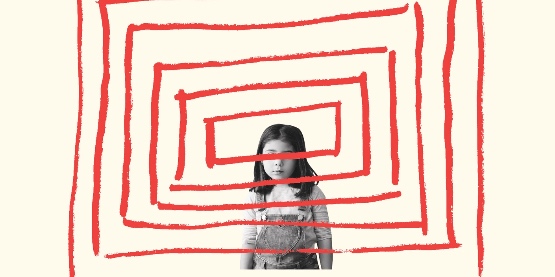
-Can feel extreme fear, helplessness.
-He may not be able to perceive what is going on around him.
-Not speaking or a decrease in emotional reactions, dullness, absent-mindedness may be observed. On the contrary, behaviors such as being indifferent to the event, playing games and singing can be seen. For children, both types of reactions are possible and natural.
He may not remember what happened during and after the earthquake.
-It may be as if you are reliving the earthquake moment (fear, shouting, trembling, palpitations). May be afraid of being alone, closed places, and the dark.
- There may be insomnia, fearful dreams, and startle from sudden noises.
- May act like a child for his/her age (inability to be separated from parents, bed-wetting, insistence and stubbornness).
-Nausea, stomachache and headache, frequent toilet visits, loss of appetite can be seen.
WHAT CAN YOU DO TO HELP YOUR CHILD?
The most basic need of your children is to feel safe and secure. Do not keep your children away from you, meet their needs for nutrition, shelter and attention directly.
The first condition for helping your children is to be as calm, reassuring and consistent as you can.
-Remember that your children need your closeness more than ever (do not neglect bodily intimacy, holding hands, hugging).
On the other hand, you should maintain this intimacy without turning it into an overprotective one. Keep in mind that it is in their best interest to give your children age-appropriate tasks and responsibilities that they can do.
- Support and encourage him to tell what he heard, saw and experienced during and after the earthquake. Listen to their concerns and respond empathetically, without judgment. If he doesn't want to tell, don't force him. Tell him that whenever he wants to talk, then you can listen.
-Preschoolers and early school children may have thoughts after a bad event that they caused it, make sure it's not their fault.
- Allow them to express their feelings such as fear, anger or even encourage them, do not prevent them from crying, and answer their repetitive questions.
-Tell them that what you're going through is perfectly natural, it's not a disease.
-In order to comfort your children, instead of saying "it's over" or "nothing will happen", inform them about what they should do in case of possible earthquakes.
Do not avoid talking about earthquake-related issues in front of your children.
Don't talk about the details of the gruesome events in the presence of or with your children. Point out when positive parent-child interaction occurs and encourage other parents to engage in similar ways with their own children.
-Be sensitive about understanding the changes observed in children after a crisis: Know that behaviors such as fear and avoidance of other people or fighting more with other children are common reactions to tension.
- If you have extreme mental symptoms or if you think that there is someone around you who cannot take care of their children because of this, consult a mental health professional immediately.
-Take your children, who are affected a lot, whose behavior changes do not decrease or increase gradually, to the nearest Mental Health specialist, if possible, to the Child Mental Health specialist.
